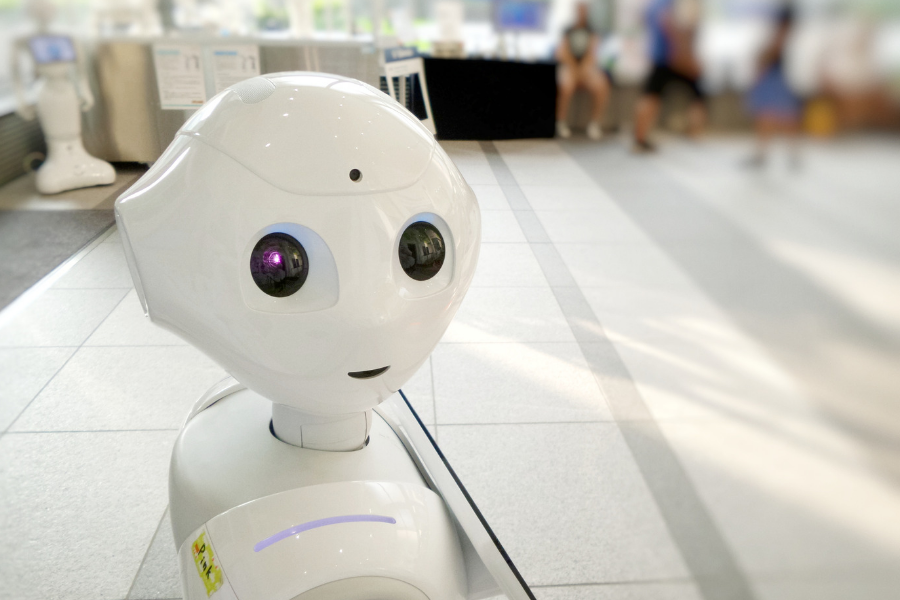After an entirely extraordinary 2020, the dawn of a new year brings with it not only new technologies, tools and trends, but – perhaps most importantly – new opportunities for businesses post-pandemic.
For many, 2020 was defined not by the pursuit of goals set at the beginning of the year, but simply by survival and recovery. Faced with the immense challenges of this year, their endeavours to do so were built upon the foundation set by smart, sophisticated business technology.

Vijay Sundaram, chief strategy officer, Zoho
While 2020 is drawing to a close, the pandemic isn’t. The impacts and remote work arrangements that had appeared short-term, could now be medium- to long-term. Navigating this paradigm shift is dependent on businesses finding smart, agile solutions and competitive advantages that will mitigate future risks and maximise future opportunities.
In 2021, many of those advantages will be powered by evolutions in artificial intelligence (AI) and business intelligence (BI) that will streamline, safeguard and smarten processes from freelancers to startups to global conglomerates.
AI in 2021: Enhancing data security, process optimisation
With COVID-19 disrupting traditional methods of business and most companies going fully or partially remote – in some cases indefinitely – data security has become a bigger concern. No longer stored in specific network and device parameters, business data is more exposed and at risk than ever before.
In 2021, advanced AI technology will enable greater security by detecting potential threats and data breaches before they happen.
For example, AI will be used to recognise suspicious activity that could be seen as an indicator of a security attack, with particular focus on malware detection, root cause analysis, outage prediction and adaptive authentication.
If, as is expected, millions of people continue to work remotely in 2021, AI represents an invaluable – and increasingly proactive – safety net as the Australian workforces’ fledgling data literacy grows.
The benefits of AI are not just for safeguarding, but streamlining. The shift to remote work saw digital transformation accelerate rapidly. With that, and the increased data generated from broader digital transformation, the need for AI to boost optimisation has grown too. AI, embedded into new and existing roles and workflows, will help optimise everything from marketing and sales, to collaboration and admin.
With time-consuming administrative burdens eased, businesses have more time to pursue growth and new opportunities.
Growth of smart BI, intelligent storytelling
Like AI, BI has become an essential catalyst of growth. With COVID-19 accelerating the adoption of software, BI will play an even greater role in helping businesses collate and analyse data, and turn it into informed, insights-driven decisions. If AI is used to forecast or improve future processes, BI develops past data to improve, for example, business processes, customer service, and employee satisfaction.
Working together in greater unison, BI and AI will provide the augmented analytics and data from which businesses can identify data types automatically, model information straight from source and automate suggestions. The adoption of BI in Australia in recent years has grown quickly, as has the simple-yet-sophisticated ways it is being leveraged. The uptake, impact and breadth of these functions will only increase in 2021.
For example, conversational analytics will allow business users to ask questions verbally, in their natural language, and the engine will be able to understand and generate answers within seconds. Think Siri or Alexa, but within a business.
Meanwhile, instead of users spending time determining which insights are most impactful for their business, storytelling – also known as automated insights – will highlight key findings for them, build digestible narratives and even auto-generate presentations.
Embedded and self-service BI will provide real-time insights, rather than static reports, that give businesses greater flexibility and powers to understand and evolve in line with fluctuating, often volatile, environments. And mobile BI will provide on-the-go, from anywhere insights that will provide users with one of their greatest competitive advantages post-pandemic, agility.
With AI and BI working in unison in this fashion, jobs will be completed faster and more effectively and users with less technical backgrounds will gain greater analytic literacy. Little can be done to forecast an event like a pandemic, but through AI and BI and their individual and collective strengths, businesses and industries can utilise the safeguards and certainty they’ll need as the world of work continues to change.
- Vijay Sundaram is the Chief Strategy Officer of global technology platform, Zoho. With 45+ apps, Zoho is the cloud-based operating system for businesses of any size, in any industry.




















Trending
Daily startup news and insights, delivered to your inbox.